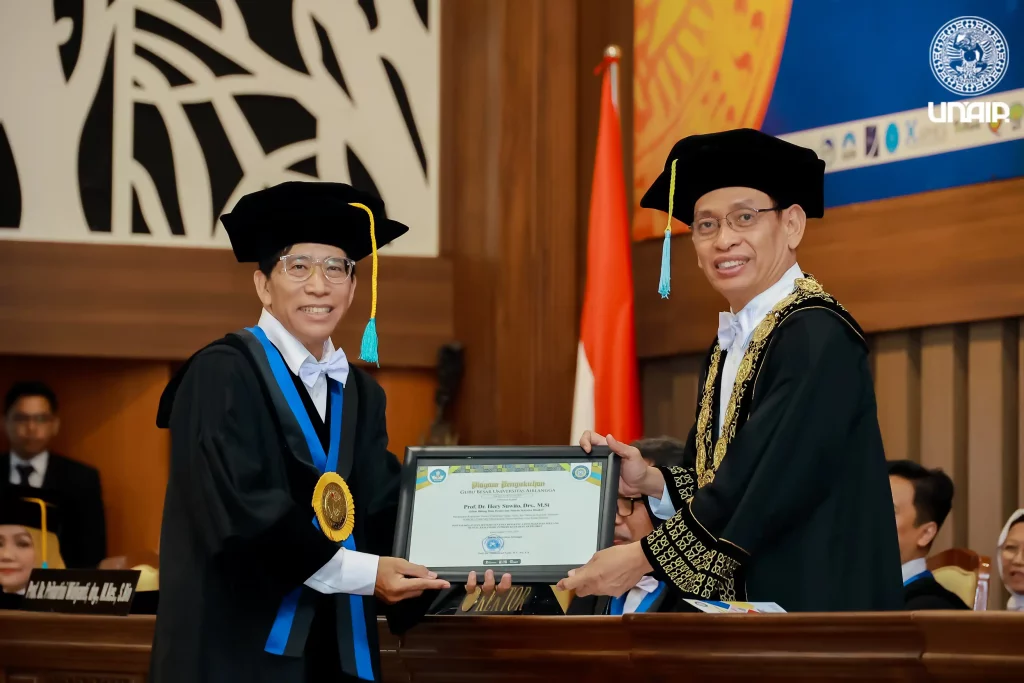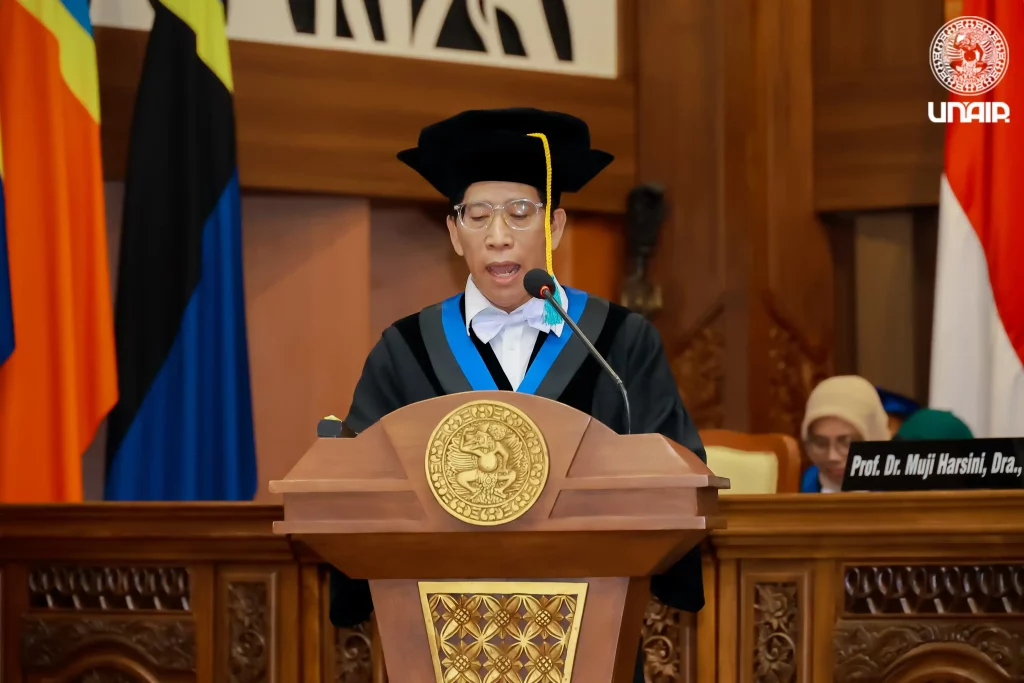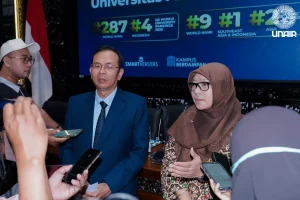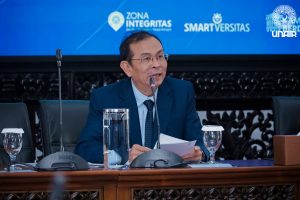UNAIR NEWS – Universitas Airlangga (UNAIR) reached another milestone by officially appointing six new professors on Thursday, May 8, 2025. The inauguration took place at Garuda Mukti Hall, located at UNAIR’s MERR-C Campus Management Office. Among the newly appointed professors was Prof. Dr. Hery Suwito, Drs., M.Si., from the Faculty of Science and Technology (FST).
As a Professor of Bioactive Compound Design and Synthesis, Prof. Suwito emphasized that in order for Indonesia to achieve independence in the pharmaceutical sector, it must begin developing the ability to produce its own active pharmaceutical ingredients (APIs). This is especially critical given the country’s ongoing dependence on imported pharmaceutical raw materials.
Innovation in bioactive compounds
Prof. Suwito highlighted that one of the most promising approaches in modern drug development is the biological-driven method, which is rooted in biological and molecular understanding. This approach relies heavily on computational modeling and protein databases to design potential drug compounds.

“For more than a decade, our research has centered on compounds derived from dihydropyrimidinone (DHPM), synthesized using a chemical process known as the Biginelli reaction,” he explained. “By modifying the catalysts in this reaction, we’ve been able to improve efficiency and create a broader range of compound structures. So far, we’ve successfully developed seven different DHPM structural frameworks.”
Medical applications
Prof. Suwito noted that the synthesized compounds have shown significant therapeutic promise. DHPM derivatives exhibit strong biological activity, including 18 antioxidant compounds, as well as compounds with anticancer, antidiabetic (including preventive potential for complications), and anti-inflammatory properties.
He also stressed that Indonesia must invest in developing upstream pharmaceutical capabilities, starting from compound synthesis. He believes that with the right level of commitment and institutional support, the country’s potential in pharmaceutical research and production can flourish. “Our domestic research capabilities are considerable, as proven by the competitiveness of our findings. With strong commitment and appropriate backing, Indonesia can move toward self-sufficiency in producing pharmaceutical ingredients,” he concluded.
Author: Rifki Sunarsis Ari Adi
Editor: Yulia Rohmawati









